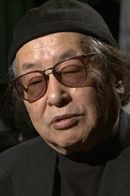Kazuo Kuroki, a renowned Japanese film director, made a significant impact in the industry through his thought-provoking films that delved into the complexities of World War II and the concept of personal guilt.
Kuroki's journey in the film industry began at Doshisha University, where he initially attended classes before leaving to pursue a career at Iwanami Productions. During his time at Iwanami, he directed various PR films and documentaries, and was also part of the "Blue Group" - a collective of filmmakers that aimed to push the boundaries of documentary filmmaking.
However, Kuroki's experiences at Iwanami were not without challenges. He clashed with sponsors while working on the film "Hokkaido, My Love" in 1960, which ultimately led to his departure from the company. This setback did not deter Kuroki, as he went on to direct "Record of a Marathon Runner" in 1964, a film that played a significant role in transforming the Japanese documentary landscape.
Kuroki's subsequent transition to fiction filmmaking was marked by his independent production of "Silence Has No Wings" in 1966, which premiered at the Art Theatre Guild. He became a prominent figure in the world of independent Japanese cinema, and his work often explored the theme of the atomic bombings of Japan.
Kuroki's personal connection to the city of Nagasaki, where he grew up, had a profound impact on his work. He felt a deep sense of guilt and responsibility for the Allied bombings that claimed the lives of some of his fellow students, who had been conscripted to work in a local factory. These feelings of guilt are reflected in his films, including "Tomorrow" (1988) and "The Face of Jizo" (2004),which continue to be celebrated for their thought-provoking exploration of the human experience.
Throughout his career, Kuroki's work has been characterized by its introspective and emotionally charged portrayal of the human condition, often focusing on the complexities of personal guilt and the devastating consequences of war. His films continue to be celebrated for their thought-provoking exploration of the human experience, and his legacy as a pioneering filmmaker in Japanese cinema remains unshaken.












